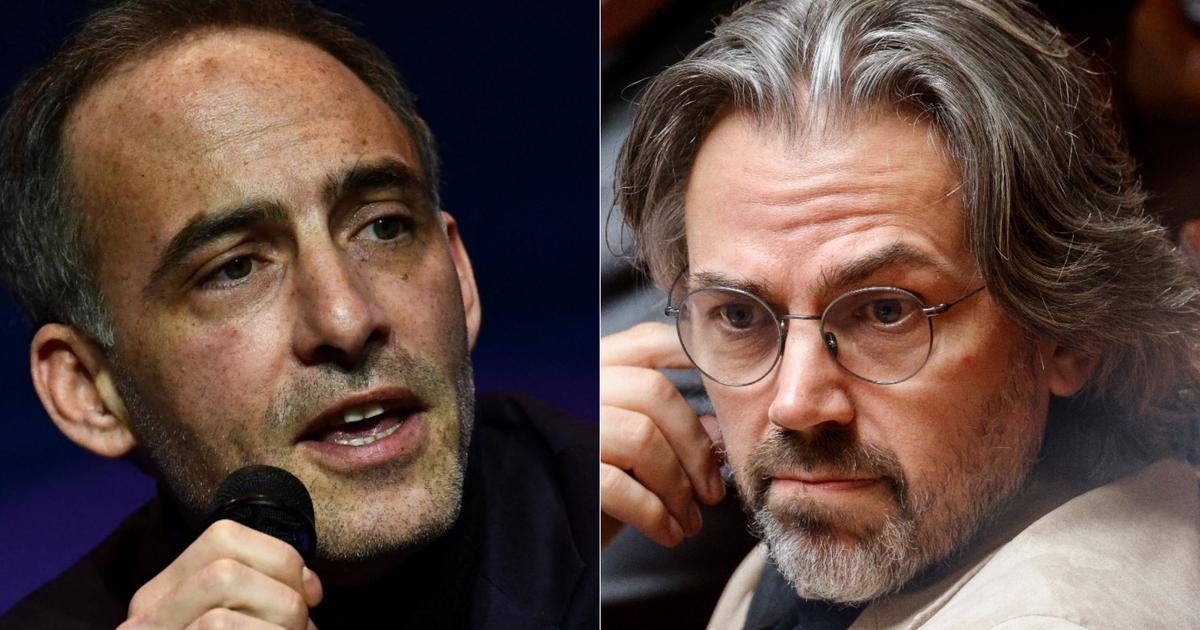The image returned to us by the mirror of digital life is fictitious and, at the same time, it is part of our daily reality.
It happens on platforms like Zoom or Instagram and for Bruno Patino (Courbevoie, France, 57 years old) it is "a metaphor for the total screen."
An essayist and president of the Franco-German Art chain, he is one of the professionals in the French communication sector who best knows the digitization process.
He was responsible for the transition to the Internet of
Le Monde
and the French public television channels.
He therefore knows well the effects of screens in our heads.
And that's why it's interesting to listen to him.
Patino attends EL PAÍS during his visit to Mexico to participate in the Guadalajara Book Fair.
A few weeks ago he posted
Tempest in the fishbowl
(Alliance), where he continues the reflection that began with
The civilization of fish memory
and in which he warns about polarization and dependency magnified by social networks.
Question.
Is that situation that you point out in his book reversible?
Reply.
Perhaps we are in a paroxysmal moment of the influence of social networks on the polarization and personal dependence of many of us, not only the youngest.
And this moment is accompanied by others: the individual awareness to put aside the screen, because it prevents us from doing other things, steals our concentration and imagination.
And society has become a society of weariness, weariness of information or politics.
The moment of dependence and polarization is also the moment of individual and collective awareness, but we still do not know what it will lead to.
Q.
That fatigue was exacerbated during the pandemic, but the connection kept many jobs afloat.
R.
The pandemic shows us exactly what technology brings.
He saved our lives, we were confined, but not confined, and it makes a huge difference.
It also saved working lives and student life.
At the same time, it brought tremendous fatigue and the perception that something was missing.
Q.
For example?
R.
There are details that may seem like a joke, but for me they have meaning.
For example, those technological programs to avoid Zoom or Skype that make the interlocutor believe that there are works on the street, people or a child in the room.
That shows that we need an instrument to escape.
Q.
At the same time, you talk about “Zoom dimorphism”.
What is?
A.
Cosmetic surgeons will tell you: many have dimorphism caused by Zoom: you look at the screen and think that this is your reality.
You see yourself on the screen every day, you think that this is your reality, but they are filters.
On Instagram you are building your own image and in the end your true image seems strange to you in front of the one on the screen.
It is a metaphor for the total screen, which at the time saved our lives and also engulfed us.
Q.
And how does the climate of polarization influence that?
A.
We see it almost everywhere.
Polarization is not a product of technology, but of the economic model of social networks, of the algorithms that classify messages according to their economic efficiency.
They capture as much attention as possible, retain them for longer, seek to go viral... Messages that are accelerated by algorithms provoke strong emotions: anger, laughter, scandal... Those that are slowed down by the algorithm are more informative and point to our ability to reflection.
The public space that is built on the networks is not the faithful mirror of our society, but rather that of our emotions.
Q.
What are the consequences?
R.
I call social networks the fifth power, although that power has no one to manage it ideologically.
We will see what ends up happening with Elon Musk, but until a few days ago the economic model was the algorithm.
And the economic model of polarization and emotion produces a strong destabilization of the powers.
This is very good when we are talking about a dictatorship, but democracies that become democracies are also destabilized: there is no debate of ideas or even opinions, only debate of emotion.
Q.
What do we understand today, or misunderstand, by freedom in the networks?
A.
It is a triangle.
Libertarianism is at the beginning of Silicon Valley, that mixture of hippies and the belief, which comes from thinkers of the 17th, 18th and 19th centuries, that at a time like this nobody intervenes.
But when ideological libertarianism is accompanied by digital capitalism, it causes polarization and dependency.
Then we have freedom, but we see that with the impact of these platforms on public health or our democracy, many States say that at one point or another they are going to have to regulate our behavior.
That is, we have libertarianism, digital security and freedom.
And that's where we are.
Q.
You have mentioned Elon Musk several times, your foray into Twitter is recent.
What do you think?
R.
Jack Dorsey [co-founder of Twitter] is not an angel, he left Twitter with private projects, but I found it interesting, it is full of paradoxes: he does transcendental meditation and he likes sports cars.
He saw that we have a problem with Twitter and that we must try to qualify the polarization.
Now Elon Musk has arrived, who has three traits.
First, he is a real businessman.
Money has never been a problem for him, but his credibility in the financial markets is essential, he can't do anything.
The second is ideological: libertarianism, free speech, somehow he tells you "welcome to hell."
But there is a third trait: a rockstar complex, like those who went to a hotel and destroyed his room.
What happens with Twitter is extremely important: it feeds the media agenda.
Q.
What can journalism do to stop this climate?
R.
It is his most important fight.
They are two sides of the same coin: polarization and information weariness.
People no longer know what is information and what is not, they got tired.
The media have to know that they have an important role on the agenda and that the fight against polarization is difficult, but we have to try to resist the acceleration of emotions.
Q.
How do you see the outlook for Europe ahead?
R.
The medium that I run has declared itself pro-democratic and pro-European for 30 years.
You used to say to my generation “look, this medium is pro-democratic and European” and we thought that they all were.
Today the word "European" for some has gone out of fashion.
And democracy?
I still don't hear truly anti-democratic voices.
But it is fragile, it cannot resist everything.
We have to fight for it.
You have to keep watch.
Subscribe here
to the weekly newsletter of Ideas.
Subscribe to continue reading
Read without limits
Keep reading
I'm already a subscriber















